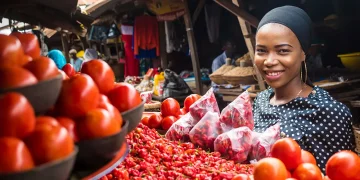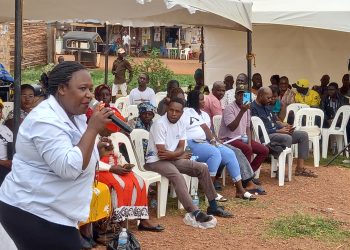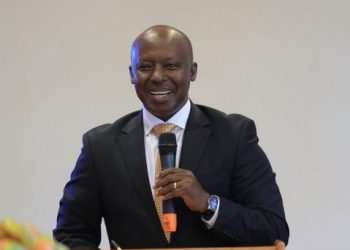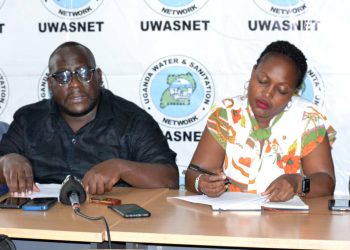The Ministry of Gender, Labour and Social Development has highlighted the significant achievements of the Generating Growth Opportunities for Women Entrepreneurs (GROW) Project since its implementation.
During her presentation at the women entrepreneur’s policy forum, State Minister for Disabilities, Helen Grace Asamo, emphasized their collaboration with the Uganda Women Entrepreneurs Association Limited (UWEAL) to enhance the capacity of women entrepreneurship platforms across Eastern, Central, and Western Uganda.
She also mentioned that the report for the selection of the Northern Uganda Women in Business Association (NUWEBIZ) has been submitted to the World Bank for approval.
Additionally, she highlighted their partnership with Makerere University Business School, which has led to the development of a core entrepreneurship curriculum.
“The curriculum has been translated into major languages spoken in Uganda and by refugees. Further to this, we have issued a call for training firms that will cascade the training to all women entrepreneurs across the country,” she noted.
Asamo highlighted that the ministry has reviewed and chosen an initial group of 23 host institutions dedicated to training women entrepreneurs and their employees in acquiring practical work placement skills.
These institutions are set to be officially revealed by December 2024.
“We have received more than 100 additional applications from various institutions nationwide, and the review and vetting process is currently underway. We anticipate announcing the additional host institutions by January 2025,” she stated.
Furthermore, she reported that to date, over 1,500 women entrepreneurs have benefited from the GROW loans.
“As you may be aware, there have been concerns about requirements for collateral for the GROW loan with many leaders calling for scrapping this requirement. The same concern was discussed by the Cabinet of Uganda on 14 October 2024 and it was resolved that because of the need to create a revolving fund, it is important that borrowers pay back and having collateral is one method of enforcing compliance,” he added.
She emphasized that the matter concerning the proposed reduction of the minimum loan amount to at least shs2 million was also deliberated with the Cabinet.
She noted that It was concluded that, given GROW is an accelerator program, it should persist in focusing on women entrepreneurs whose businesses require more funding than what is offered through other government initiatives.
Asamo clarified that this approach will prevent overlap and ensure a clear understanding of the intended scope of GROW as originally conceived.
“Therefore, the minimum amount a woman entrepreneur can borrow under GROW shall remain shs4 million,” she added.
She further clarified that there are worries regarding the depletion of funds from the original five commercial banks, noting that the initial contracts established amounted to shs98.8 billion, out of a total budget of shs260 billion.
“We therefore still have funds to lend out under the Project. The agreements we signed with the Banks require that an independent firm verifies and confirms that funds were lent out to eligible beneficiaries before the funds are replenished. This un-intendedly results into delays to replenish the Banks—but remains a good safety net that helps us confirm that loans are going to the target beneficiaries,” she added.
She indicated that the selection process for microfinance institutions and Savings and Credit Associations has been finalized, which will enhance access for women entrepreneurs.
This she says, allay fears that certain women in the target group might not receive adequate support from commercial banks.
“This report is now subject to internal approvals and clearance by the World Bank. I would also like to bring to your attention the Cabinet resolution of having equal allocation of the GROW loan apportionments across the 19 sub-regions of Uganda. My Ministry is engaging the World Bank to agree on the mechanisms for implementation of this directive,” he added.
She said project has also completed the design phase for infrastructure and business competition grants, which are set to be publicly announced between December 2024 and January 2025.
These grants will focus on vital sectors of the economy, such as manufacturing, value addition, the creative industries, science and technology, and services.
GROW project
The GROW Project is a Government of Uganda initiative, led by the Ministry of Gender, Labour and Social Development in partnership with the Ministry of Finance, Planning and Economic Development (MoFPED) and implemented through the Private Sector Foundation Uganda (PSFU).
The project commenced on January 20, 2023, and is scheduled to run until December 31, 2027. It is supported by a World Bank grant (IDA-19) amounting to USD 217 million, which includes USD 40 million allocated specifically for refugees and host communities.
Objective
The GROW Project development objective is to increase access to entrepreneurial services that enable female entrepreneurs to grow their enterprises in targeted locations, including in Refugee Hosting Districts (RHDs).
The Project is to benefit over 60,000 female owned enterprises including 3,000 refugee-owned business, 280,000 women entrepreneurs and employees including 42,000 refugees, 14,000 host community members and 1.6 million indirect beneficiaries.
Asamo said during Project design, analytical studies undertaken revealed multiple constraints that face women entrepreneurs, which include: inadequate business management skills; lack of access to affordable capital; limited access to common user manufacturing infrastructure and negative social norms that affect their participation in business.
“The Project is, therefore, responding to these identified constraints by providing an integrated package of services to help women entrepreneurs grow their businesses. In this regard, GROW was conceived to benefit women in business (entrepreneurs) mainly the micro and small business women entrepreneurs by providing tailored skilling opportunities, access to affordable financing and productive infrastructure,” she added.
She noted that the GROW Project is an accelerator for successful beneficiaries of other Government economic empowerment initiatives for example the Parish Development Model (PDM), Uganda Women Entrepreneurship Programme (UWEP), Youth Livelihood Programme (YLP) and EMYOOGA.
“It is not meant to benefit start-up businesses but targets women entrepreneurs who have existing businesses and require entrepreneurial services that support scaling up of those businesses,” she explained.

































